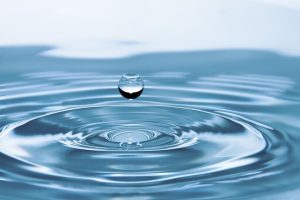Choosing the right water filtration technology can feel like navigating through a vast
sea of options. Each method, from ultrafiltration (UF) to reverse osmosis (RO), offers
unique benefits tailored to different needs. At TK Water Solutions, we guide you
through these choices to ensure you select the best system for your specific
requirements. This guide will compare UF membranes to other popular filtration
technologies, helping you make an informed decision for optimal water purity and
efficiency.
What Are UF Membranes?
Imagine a filter so fine it can catch particles that are nearly invisible. That’s the
essence of ultrafiltration (UF) membranes. These powerful filters use a membrane
barrier to remove particles as small as 0.01 microns, effectively blocking bacteria,
viruses, and larger solutes while letting clean water pass through. This capability
makes UF an excellent choice for applications requiring high levels of purity but not
the extreme purification that other methods provide.
Comparing UF Membranes with Other Filtration Technologies
UF Membranes vs. Reverse Osmosis (RO)
Reverse osmosis is the marathon runner of water filtration—ideal for long, tough jobs
where you need to remove the smallest impurities, including ions and molecules. RO
systems are perfect when you need absolutely pure water, but this comes at a cost
of higher energy use and greater operational expenses. In contrast, UF membranes
offer a sprinter’s speed for filtering, efficiently removing larger particles at a fraction
of the energy cost. This makes UF an economical choice for industries where
ultra-pure water isn’t a necessity but high-quality filtration is still critical.
UF Membranes vs. Nanofiltration (NF)
While UF membranes catch larger particles, nanofiltration (NF) strikes a balance,
trapping smaller particles than UF but not as tiny as those caught by RO. NF is
particularly good for softening water or reducing organic content, which can be
crucial in pharmaceutical and food processing industries. UF, however, is better
suited for applications requiring the removal of microorganisms and larger
particulates, offering a simpler and less energy-intensive solution.
UF Membranes vs. Microfiltration (MF)
Microfiltration (MF) is like using a coarse sieve—great for large particles but not as
effective for finer details. MF is ideal for applications like clarifying beverages or
treating wastewater where the primary concern is removing larger sediments and
some bacteria. UF goes a step finer, providing a more detailed clean that’s necessary
when water clarity and safety are more stringent but where the nano-level purity of
RO or NF isn’t required.
Applications and Considerations
Selecting the right filtration technology hinges on understanding your specific water
treatment needs. Are you aiming to meet drinking water standards, or are you
treating water for sensitive industrial processes? UF membranes can be the perfect
middle ground, offering significant purification without the extensive costs and
energy requirements of RO or NF.

Conclusion
Each filtration technology serves its unique purpose in the vast landscape of water
treatment solutions. Ultrafiltration (UF) stands out as a versatile and cost-effective
option that meets a wide range of industrial needs without the overhead of more
intensive systems.
Are you ready to clear the waters? Visit TK Water Solutions for more information on
our UF membranes and other filtration technologies or contact us today for
personalised advice. Let’s find the perfect filtration solution for your needs together.




